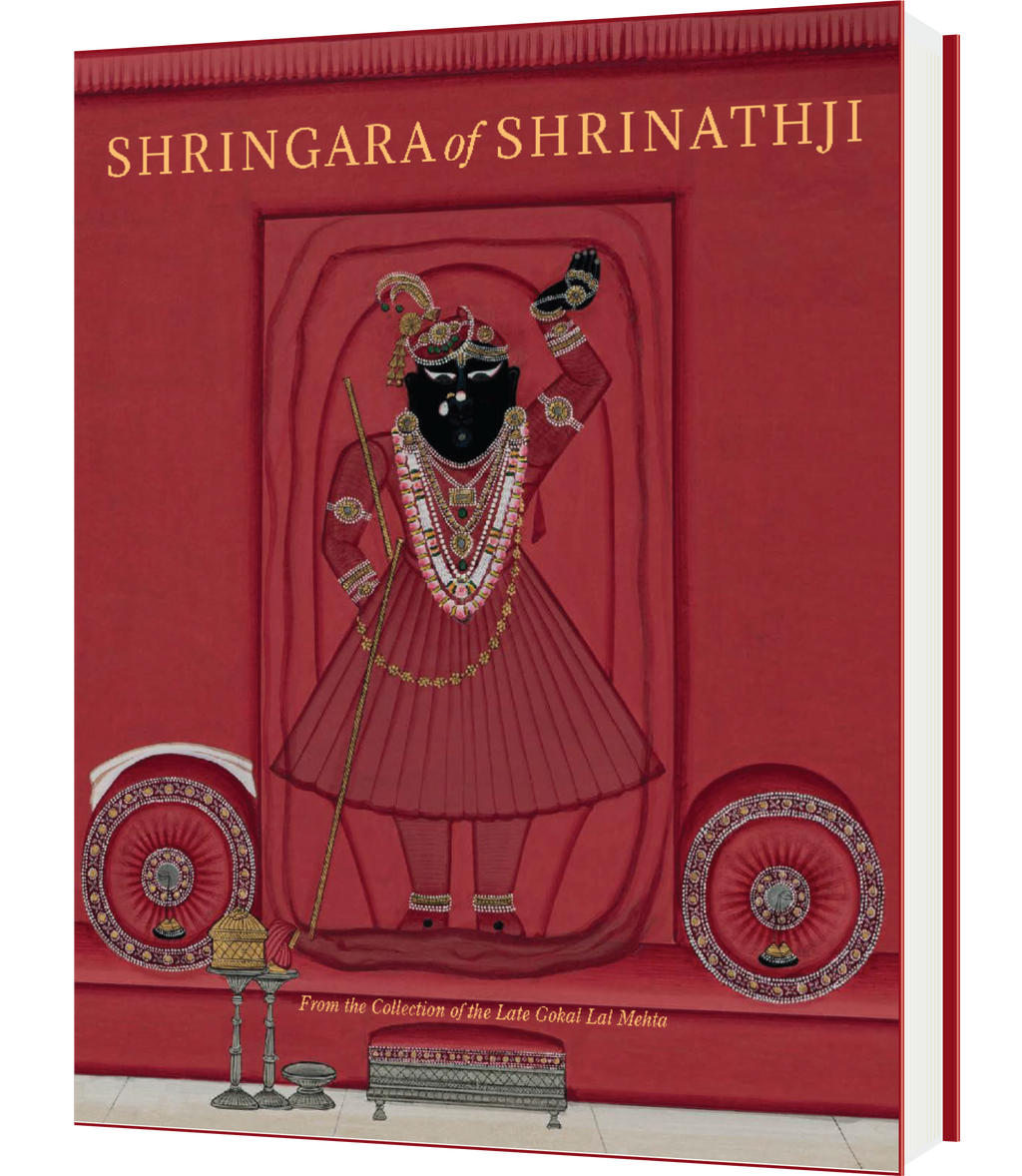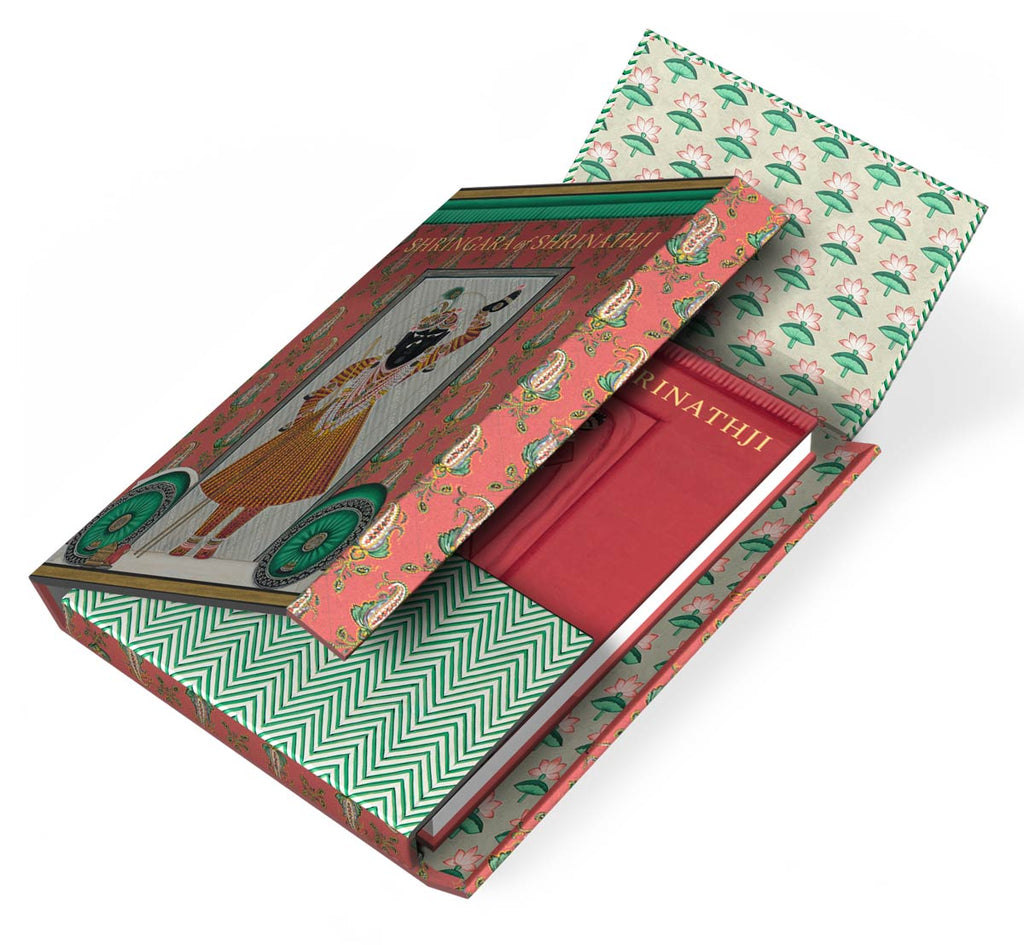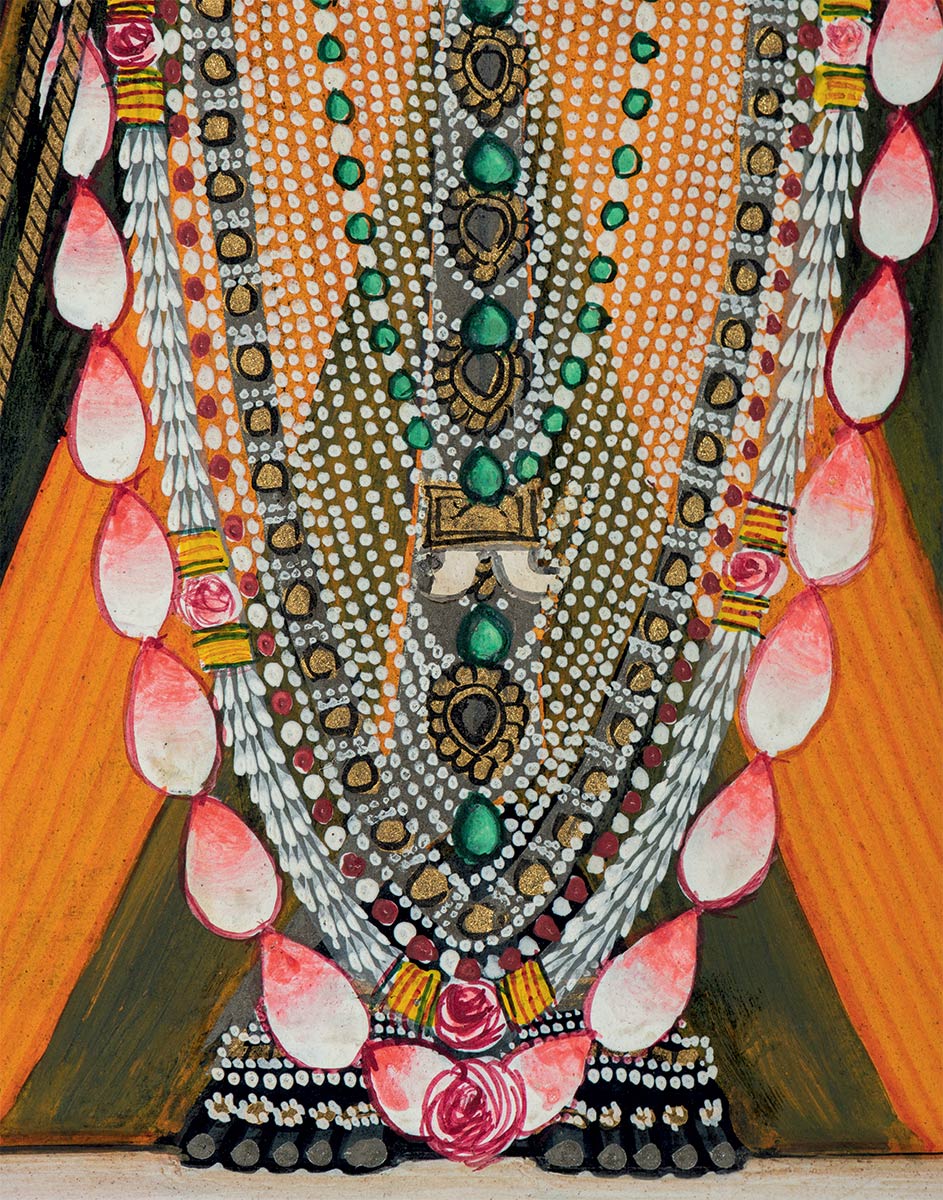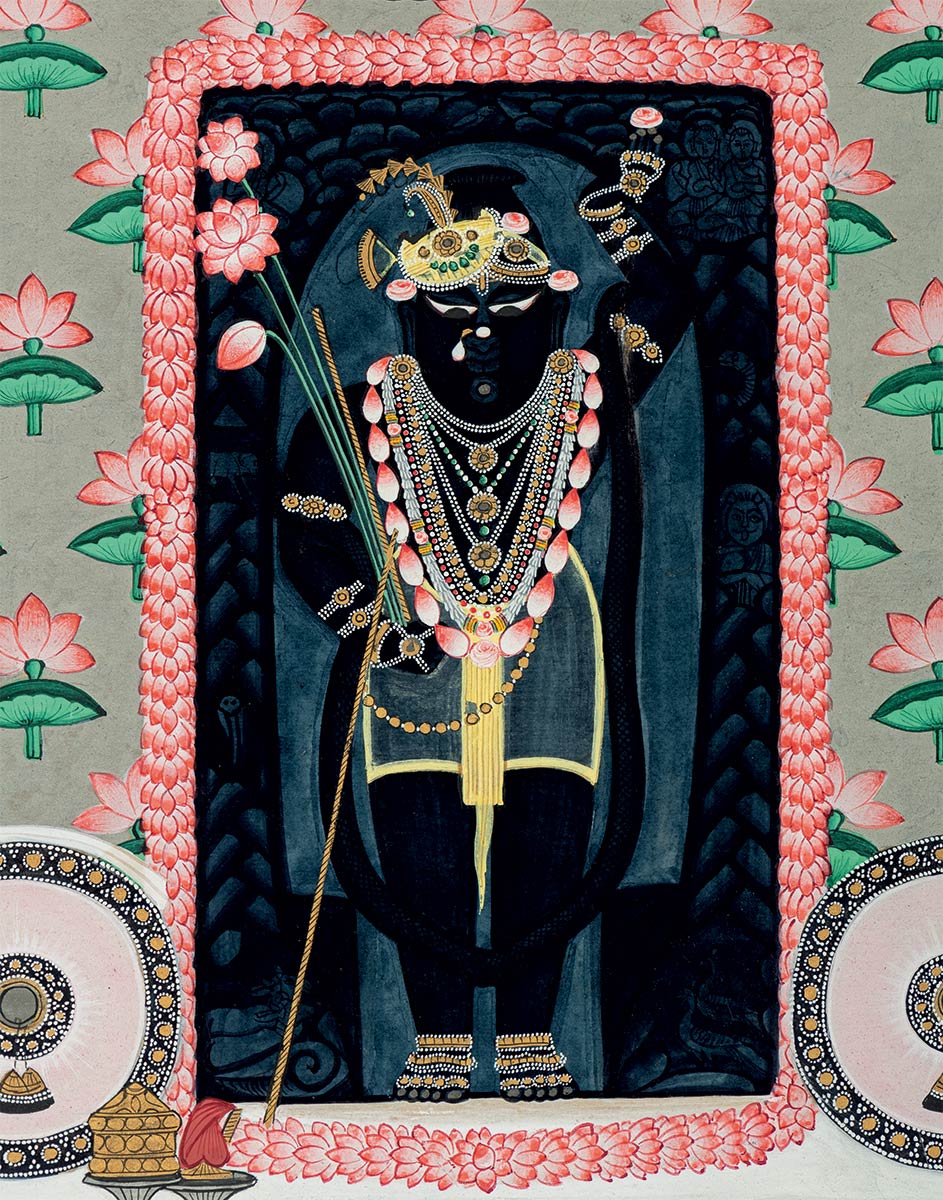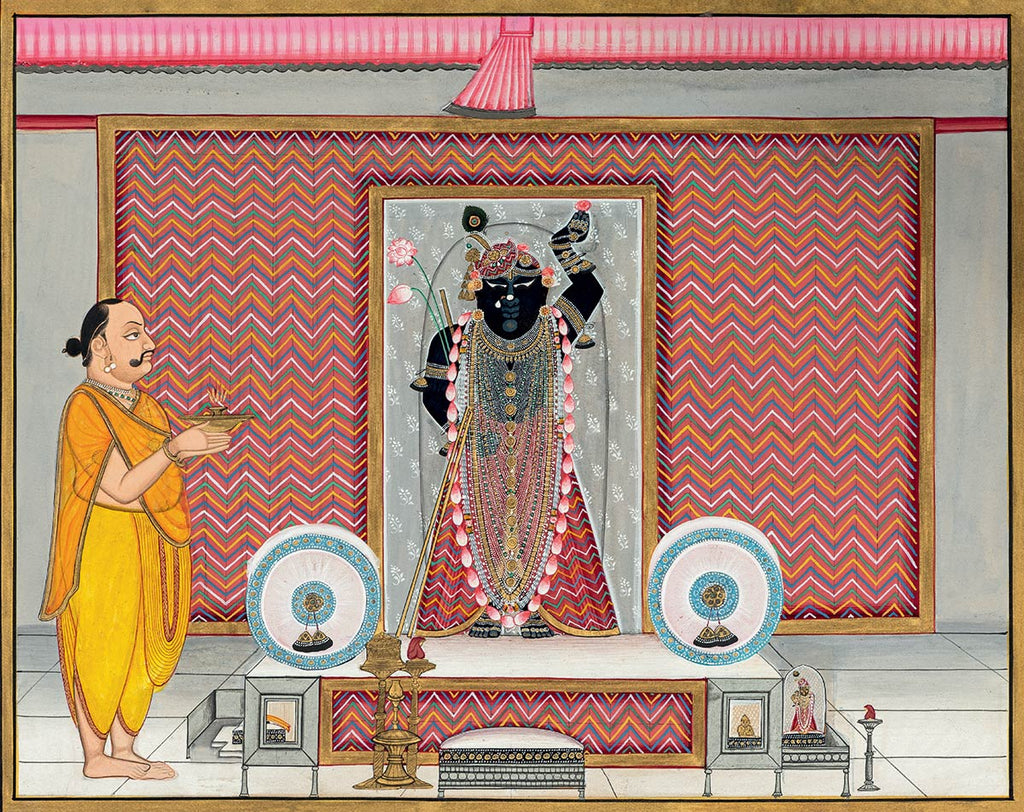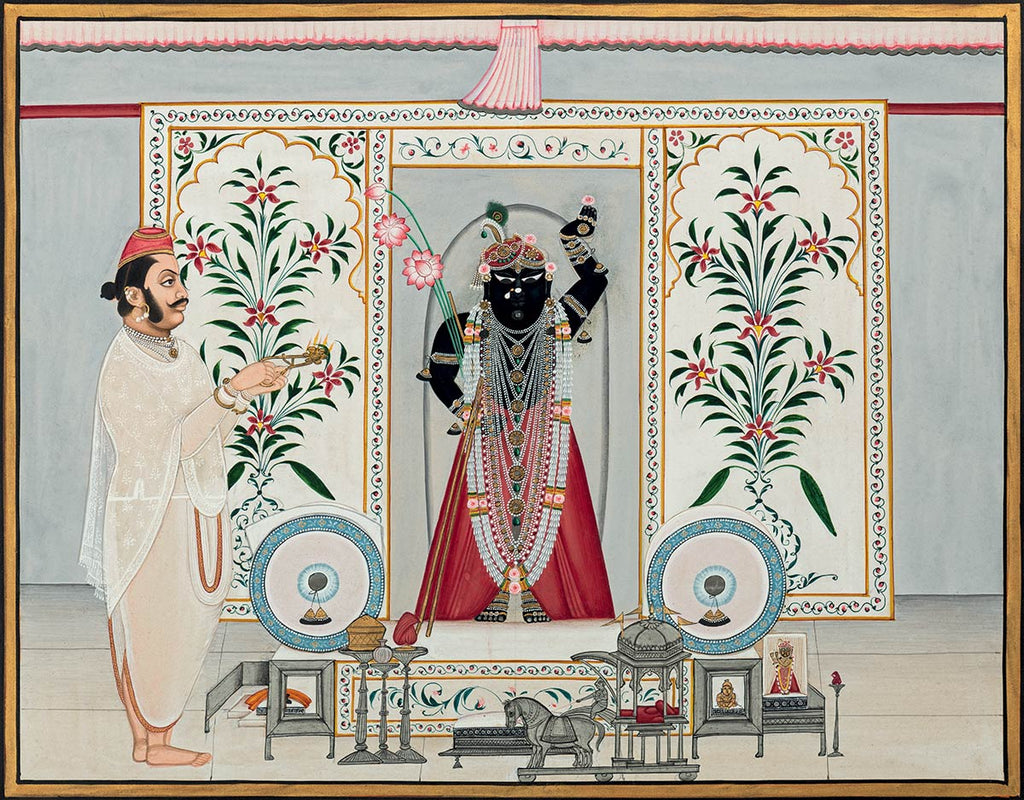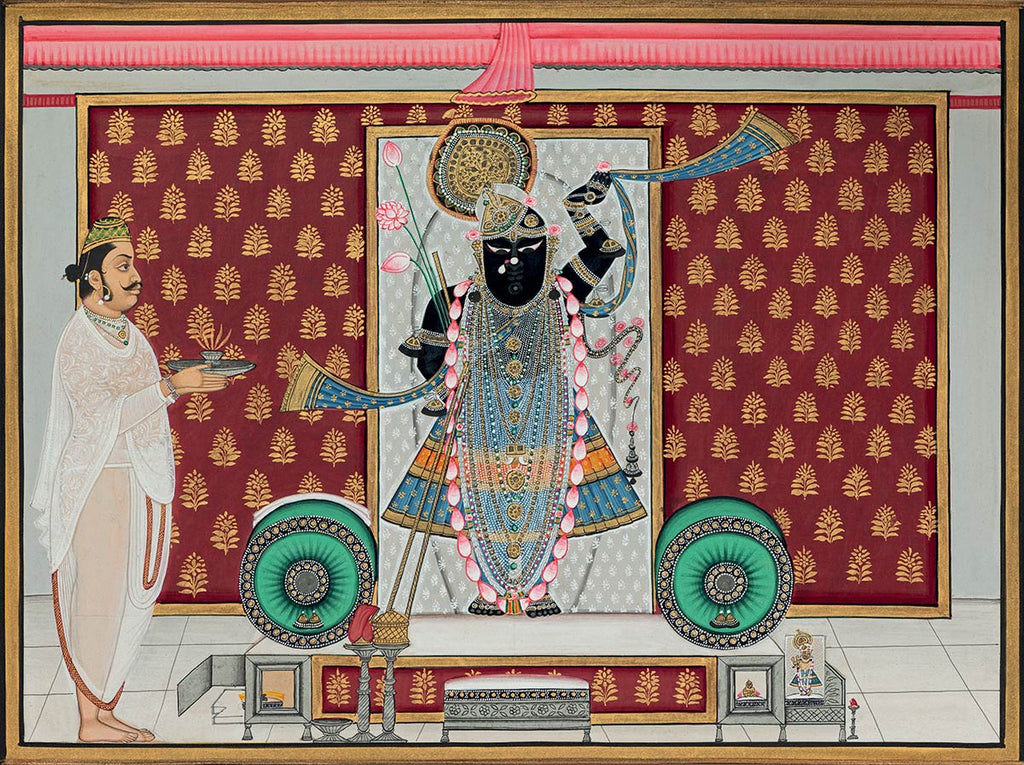Shringara of Shrinathji
From the Collection of Shri Gokul Lal MehtaIn the unique culture of Pushtimarg, a Vaishnava sect founded by Vallabhacharya in the 15th century, art and devotion are deeply intertwined. A captivating volume, Shringara of Shrinathji catalogues a set of previously unpublished miniature paintings of the Pushtimarg tradition from the collection of late Shri Gokal Lal Mehta. “...this sumptuously produced volume...on the shringaras of Shrinathji opens up for us a complex but exhilarating world. “...the volume [is] rich not only because it takes us to some 60 pichhwais reproduced in full, wonderful colour, but also because they are introduced by [artist] Amit Ambalal in a crisply written essay, packed with information, limned with great feeling.” — BN Goswamy, The Tribune
- Category: All Books, Art, Festive Gifting
Pushtimarg lays great stress on worship of the deity Shrinathji through the joys of life and living and devotion through kirtan (devotional poem-songs), bhog (offerings of sumptuous food and beverages), shringara (offerings of adornment, through dressing and ornamentation), and decoration and painting. The paintings constitute the Nathdwara school, so named because the image of Shrinathji is enshrined in a temple in Nathdwara, Rajasthan.
The sixty splendid artworks reproduced for the first time in this book were executed during the dynamic stewardship of Tilkayat Govardhanlalji (1862–1934 AD), who was a great patron of the arts. Under his patronage, Nathdwara painting reached its zenith. The collection’s period and the high quality of workmanship make it very likely that this set of Nathdwara miniature paintings were painted by Sukhdev Kishandas Gaur, the mukhia (chief artist) of the temple. Documenting the high degree of skill in draughtsmanship, portraiture and in composition, expositions by artist Amit Ambalal accompany the exceptional, high-quality photographic reproductions of these beautiful paintings in this volume.
Amit Ambalal is an eminent contemporary Indian artist whose work forms part of prestigious collections in India and abroad, including the British Museum and Victoria & Albert Museum, London. He has also authored the landmark volume Krishna as Shrinathji: Rajasthani Paintings from Nathdvara (Mapin, 1987) on the subject of Pushtimarg and Nathdwara paintings and recently written the Foreword to In the Service of Krishna (Mapin, 2019).
Vikram Goyal, founder of Viya Home, is one of India’s leading product designers, committed to the preservation of indigenous practices and the country’s cultural heritage. Recipient of multiple design awards, he is also co-founder of Kama Ayurveda, a wellness brand dedicated to promoting the unique benefits of Ayurveda. Goyal is the eldest grandchild of late Gokal Lal Mehta, whose collection is featured in this book.
—Vanmala Mehta
From the Mehta Family Chronicles —The Late Gokal Lal Mehta
Nathdwara Painting and the Mehta Family Collection by —Amit Ambalal
Nathdwara Painting and the Mehta Family Collection:
Vitthalnathji–Gosainji: The Visionary Master
Nathdwara Painting and the Mehta Family Collection:
Shrinathji and the Sacred Images of Pushtimarg
Nathdwara Painting and the Mehta Family Collection:
The Origins
Nathdwara Painting and the Mehta Family Collection:
Bhavanas in Pushtimarg
Nathdwara Painting and the Mehta Family Collection:
A Day with Shrinathji
Nathdwara Painting and the Mehta Family Collection:
A Year at Nathdwara
Nathdwara Painting and the Mehta Family Collection:
Evolution of Art at Nathdwara
Nathdwara Painting and the Mehta Family Collection:
Paintings of the Gokal Lal Mehta Collection
Catalogue of Paintings
Index of Paintings
Select Mukut Samples
Elements of Shringara
Inner Sanctum of a Haveli
| ISBN | 9789385360862 |
| Pages | 192 |
| Number of photographs | 200 |
| Number of illustrations | 45 |
| Size | 11 x 14" (297 x 355mm), boxed edition |
| Date of Publishing | Oct. 2021 |
| Language(s) | English |
| Rights Available | World rights |
“...the volume [is] rich not only because it takes us to some 60 pichhwais reproduced in full, wonderful colour, but also because they are introduced by [artist] Amit Ambalal in a crisply written essay, packed with information, limned with great feeling.”
— BN Goswamy, The Tribune





